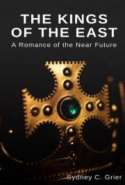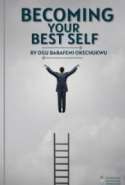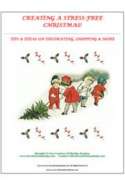1

Bassam Imam | Anthropology
Rating:
Sadly, many indigenous peoples throughout the world are under assault from outsiders who are more powerful, ruthless, greedy, and organized. The illegal and forceful acquisition of indigenous peoples’ lands, power, natural resources, and cheap labour have wreaked havoc on indigenous peoples. It is our duty to make this world a much better, safer, and just place for all, irrespective of religion, gender, culture, race, ethnicity, socio-economic status, place of residence, level of education, nationality, mother tongue, mental or physical capacity, and level of modernization. This book is a basic analysis of the aforementioned problems.
2
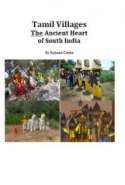
Richard Clarke | Anthropology
Rating:
This paper was written for presentation at the International Conference on Sacred Geographies, Religious Cultures and Popular Practices held at the Government Arts College, Tiruvannamalai in 2014. The basis for the paper was this blog. I started this blog after my wife Carol and I moved to Tiruvannamalai, writing about our experiences of life in India. We made friends with villagers nearby Tiruvannamalai, and because they knew we were interested, they started inviting us to village ceremonies and functions. I have a life-long interest in Anthropology, and I knew right away that I was seeing things about village culture that were special. Carol and I took many photos to document what we were seeing, and I starting writing about it. Most photos are mine. Research was by the internet.
3

Rene Hirsch | Anthropology
Rating:
Throughout history, the way we have perceived sex and procreation has determined our vision of the universe. From the primal notion of Mother Nature being the source of all life, to establishing God the Father at the summit of the creation, nature and women subjected to him. Today, the reappraisal of gender relationships, and our new approach to nature make us the witnesses of a historical change.
4
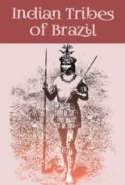
Bassam Imam | Anthropology
Rating:
My book briefly discusses the colonization of Brazil, the Indian tribes of Brazil, the attitudes of the colonizers and the colonized. The book takes an educational and activism role, educating the reader about the historical injustices suffered by the indigenous peoples of Brazil, the theft of their lands, bodies of water, and mineral rights. It also dwells on the devastating effects of hydroelectric dams, roads and highways dissecting Indian lands, expansionist ranching, settlers and squatters, state and government agencies that are often not doing enough. The violations and intrusions of Indian territories, even after legal demarcation, often introduced diseases, decimation of cultures, languages, and religions, and the activists and organizations striving for justice.
5

EA Allen | Anthropology
Rating:
Stories of Vanished Races
6

Franz Boas | Anthropology
Rating:
Explorations by the incomparable anthropologist
7

A Conan Doyle | Anthropology
Rating:
A Work by the famous mystery writer
8

Steven Salisbury | Anthropology
Rating:
The sources of their history
9
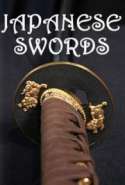
Anonymous | Anthropology
Rating:
When, in 1877, the Government prohibited the Samurai from wearing any longer the two swords which had been the privilege and distinctive mark of their martial caste, the Imperial When the Japanese government prohibited the wearing of swords, the wish was obeyed, notwithstanding the feeling that something was snapping in the life of the nation. Blades had been treasured for centuries, handed from father to son, looked upon as the soul of the owner for the sake of which he would refrain from any deed unbecoming a gentleman
10
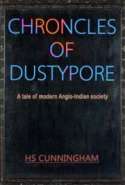
HS Cunningham | Anthropology
Rating:
A tale of modern Anglo-Indian society
11
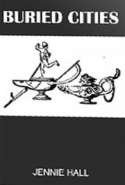
Jennie Hall | Anthropology
Rating:
Amazing discoveries at Pompei, Mycynae and other buried cities.
12
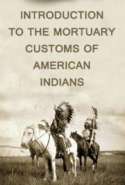
Smithsonian | Anthropology
Rating:
An anthropological study from the Smithsonian archives
13

Samuel M Zwemer and Amy E Zwemer | Anthropology
Rating:
Arabia pictured for children
14

Thomas Henry Huxley | Anthropology
Rating:
An Anthropological Study of Religion
15
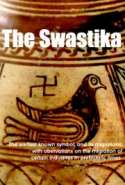
Thomas Wilson | Anthropology
Rating:
The Earliest Known Symbol and its Migrations, WITH OBSERVATIONS ON THE MIGRATION OF
CERTAIN INDUSTRIES IN PREHISTORIC TIMES. The Smithsonian Institute
16

William Blades | Anthropology
Rating:
Fire, water and humans can destoy books. How they are protected and restored.
17

Matthew Hopkins | Anthropology
Rating:
The Controversy concerning the supposed discovery of witches. Legal documments
18

G.E. Partridge | Anthropology
Rating:
The simplest possible interpretation of the causes of war that might be offered is that war is a natural relation between original herds or groups of men, inspired by the predatory instinct or by some other instinct of the herd. To explain war, then, one need only refer to this instinct as final, or at most account for the origin and genesis of the instinct in question in the animal world. Some writers express this very view, calling war an expression of an instinct or of several instincts; others find different or more complex beginnings of war.
19
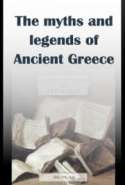
E. M. Berens | Anthropology
Rating:
The author sets before the reader a lifelike picture of the deities of classical times as they were conceived and worshipped by the ancients themselves, and thereby to awaken in the minds of young students a desire to become more intimately acquainted with the noble productions of classical antiquity. The aim was to render the legends, which form the second portion of this work, a picture of old Greek life; its customs, superstitions, and princely hospitalities, for which reason they are given at somewhat greater length than is usual in works of this kind.
20

Anonymous. | Anthropology
Rating:
The slave narrative is a literary form which grew out of the written accounts of enslaved Africans in Britain and its colonies, including the later United States, Canada and Caribbean nations. Some six thousand former slaves from North America and the Caribbean gave accounts of their lives during the 18th and 19th centuries, with about 150 narratives published as separate books or pamphlets. In the 1930s in the United States, during the Great Depression, additional oral narratives on life during slavery were collected by writers sponsored and published by the Works Progress Administration (WPA) of the President Franklin D. Roosevelt's administration.
21
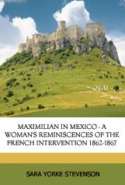
Sara Yorke Stevenson | Anthropology
Rating:
Sara Yorke Stevenson (Mrs. Cornelius Stevenson) (February 19, 1847 – November 14, 1921) was a prominent American archæologist and female rights activist.Of all the English language memoirs of the Second Empire / French Intervention, Sara Yorke Stevenson's Maximilian in Mexico: A Woman's Reminiscences of the French Intervention 1862 - 1867 is the most lucid, informed, and balanced. That said, she introduces her book with this caveat: [M]y aim is not to write a historical sketch of the reign of Maximilian of Austria, nor is it to give a description of the political crisis through which Mexico passed during that period. My only desire is to furnish the reader with a point of view the value of which lies in the fact that it is that of an eyewitness who was somewhat more than an ordinary....
22
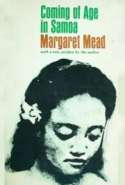
Margaret Mead | Anthropology
Rating:
Coming of Age in Samoa is a book by American anthropologist Margaret Mead based upon her research and study of youth on the island of Ta'u in the Samoa Islands which primarily focused on adolescent girls. Mead was 23 years old when she carried out her field work in Samoa. First published in 1928, the book launched Mead as a pioneering researcher and the most famous anthropologist in the world. Since its first publication, Coming of Age in Samoa is still the most widely read book in the field of anthropology. The book has sparked years of ongoing and intense debate and controversy on questions pertaining to society, culture and science. It is a key text in the nature vs nurture debate as well as issues relating to family, adolescence, gender, social norms and attitudes.[
23
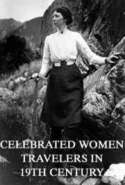
W. H. Davenport Adams | Anthropology
Rating:
The mid to late 19th century and early 20th witnessed an extraordinary number of European and American female travelers who wrote of their adventures. Industrialization had increased women’s mobility and women more easily could travel by train and streamer. As important, by end 19th century, European imperialism had made many areas of the world “safe” for women travelers. Annie Taylor, first European woman to enter Tibet, stated after she was captured, “I am English and do not fear for my life!” While many female travelers were married, a significant number were not, a situation very different from the women in most of the world where single status and the right to live and travel alone would not be tolerated. The reasons women offered for their explorations varied. Some reve...
24

Elias Johnson | Anthropology
Rating:
1881 comprehensive study that questions white prejudices. "In all the early histories of the American Colonies, in the stories of Indian life and the delineations of Indian character, these children of nature are represented as savages and barbarians, and in the mind of a large portion of the community the sentiment still prevails that they were blood-thirsty, revengeful, and merciless, justly a terror to both friends and foes. Children are impressed with the idea that an Indian is scarcely human, and as much to be feared as the most ferocious animal of the forest.But I am inclined to think that Indians are not alone in being savage--not alone barbarous, heartless, and merciless."
25

Ida Pfeiffer | Anthropology
Rating:
Ida Laura Pfeiffer (October 14, 1797 in Vienna - October 27, 1858 Vienna), was an Austrian traveler and travel book author. She was one of the first female explorers, whose popular books were translated into seven languages. She was a member of geographical societies of both Berlin and Paris, but not of Royal Geographical Society in London due to her sex.




.jpg)












































